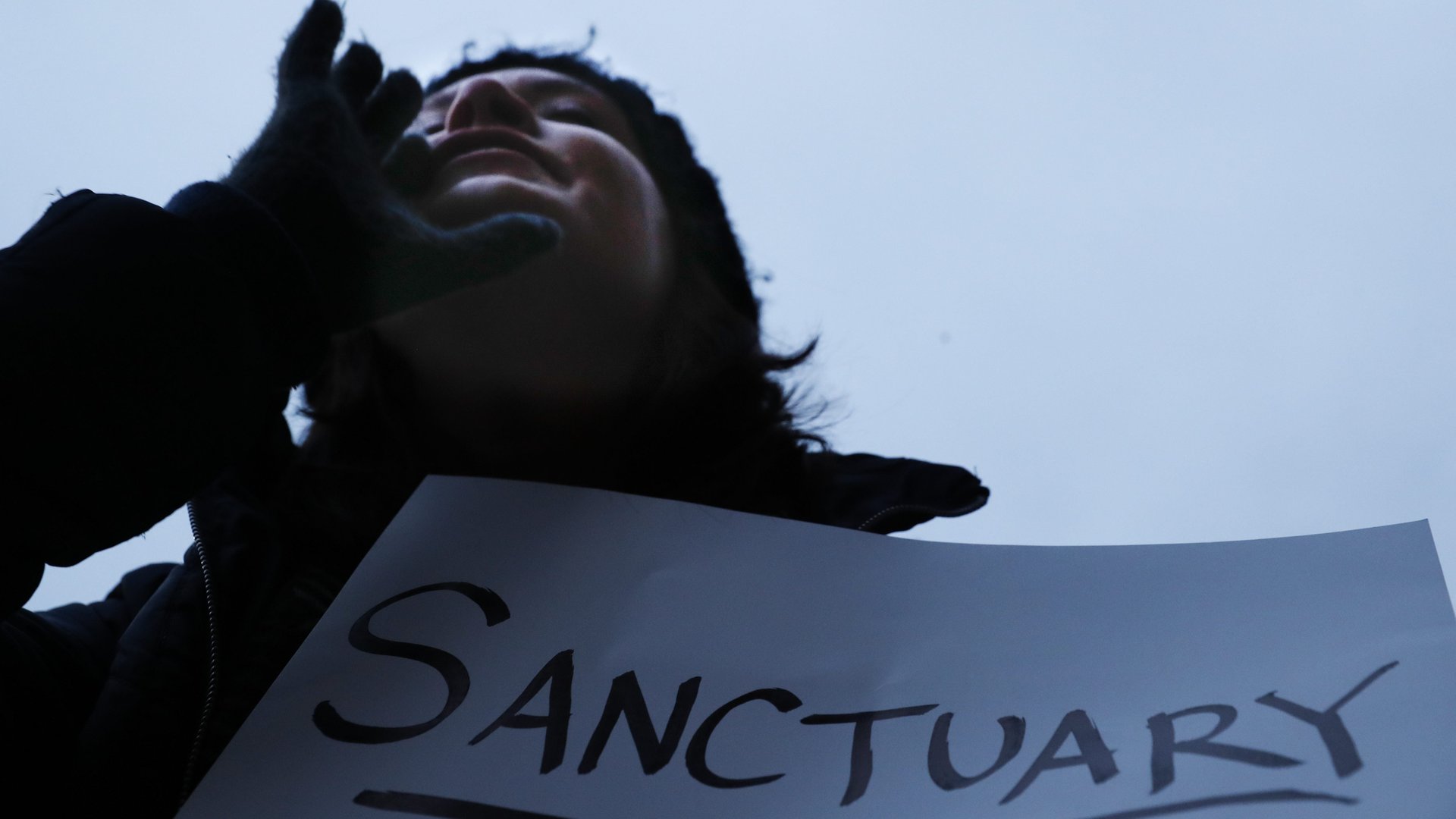For a local cop, asking an injured immigrant “are you illegal?” was more important than “are you OK?”
Patrolling undocumented immigrants is the federal government’s job in the US, but some local cops are taking it on. When he found a man who had been hit by a car lying on the side of the road, the first reaction of a sheriff’s deputy in Florida’s Monroe County was to ask “You illegal?”


Patrolling undocumented immigrants is the federal government’s job in the US, but some local cops are taking it on. When he found a man who had been hit by a car lying on the side of the road, the first reaction of a sheriff’s deputy in Florida’s Monroe County was to ask “You illegal?”
“Are you a legal citizen or no? Speak English? You got ID? Passport, visa, or what?” he went on.
The incident, first reported by Spanish-language network Univision, was caught on the deputy’s body camera. The injured man, an immigrant from Honduras named Marcos Antonio Huete, was hit by a car while riding his bicycle in Key West. He was eventually loaded into an ambulance and treated for his injuries. When he returned to the scene of the accident, as he had been instructed, he got a double whammy: He met the traffic police, who found him at fault in the accident and fined him, and the Border Patrol, which arrested him and locked him up. Huete, who re-entered the US illegally after being sent back by authorities once, is again facing deportation.
The case has garnered attention in US media because of the deputy’s callous treatment of Huete. But it’s also an example of the kind of conflict that is bound to increase as the Trump administration calls for local authorities to help federal agents in immigration matters.
The federal government has little leeway to force local police to help. President Donald Trump said in an executive order in January that he will deny funding to “sanctuary cities”—jurisdictions that protect immigrants in various ways, including by purposely not asking their legal status. (Federal law doesn’t oblige them to.) But attorney-general Jeff Sessions this week admitted in a memo that, legally, the definition of a sanctuary city is narrow. The term only refers to jurisdictions that refuse to share information about immigrants’ legal status with federal authorities; the memo says nothing about the places that choose not to collect that information in the first place.
Sessions signaled Trump might seek to change the law. He also said that the narrow definition of a sanctuary city won’t stop the administration from publicly chiding immigrant-friendly states and cities for “undermining our lawful system of immigration.”
That attitude may be emboldening local officers to pitch in on immigration enforcement. In Huete’s case, it was Florida traffic cops, called to investigate the accident, who alerted the Border Patrol—in theory, ”to assist in the identification of the subject,” a Border Patrol spokesperson told Univision. The sheriff’s office said it had “no official policy” of reporting suspected undocumented immigrants, but that leaves open whether there’s an unofficial one.
In another recent incident caught on video, a Minneapolis transit police officer is shown asking a light rail passenger about his immigration status. The person recording it is heard saying, “Are you guys authorized to act as immigration police?”
“I would stay out of that,” he continues. “It’s very touchy legal territory.” The officer appears to back down after that, and the video prompted an investigation into the incident by the transit agency.
It’s unclear how common it is for local police to ask immigrants about their status, or whether more of them are doing it. Video footage from body cams and bystanders’ cell phones will likely help answer that in coming months.